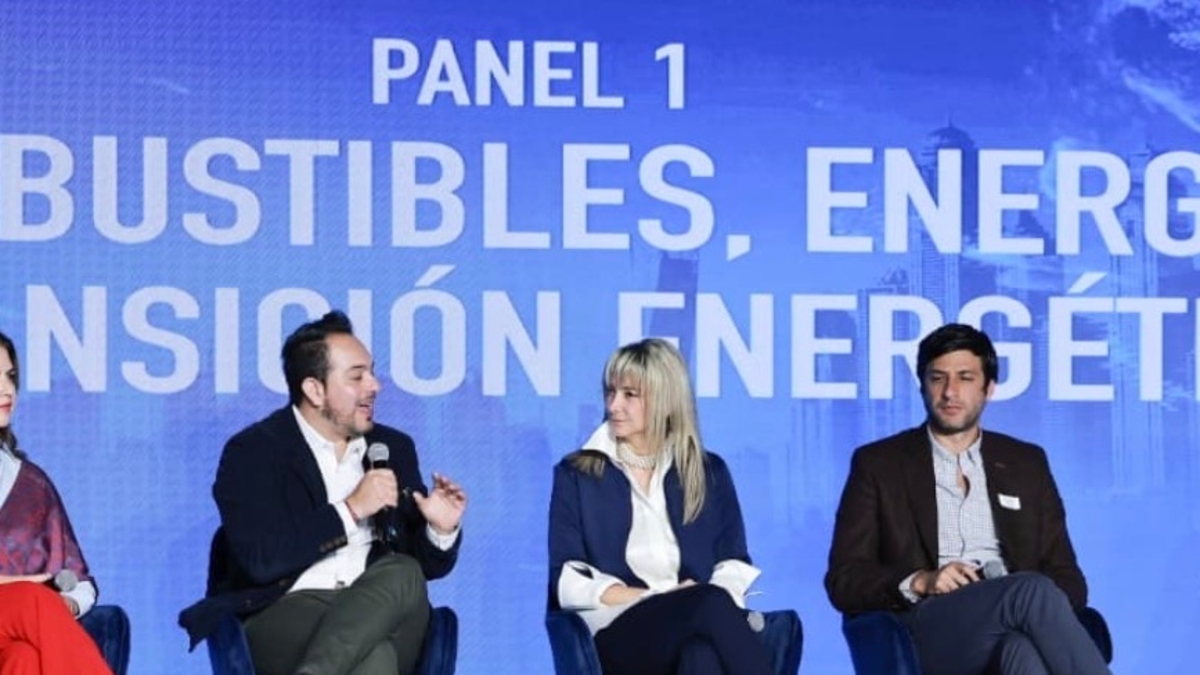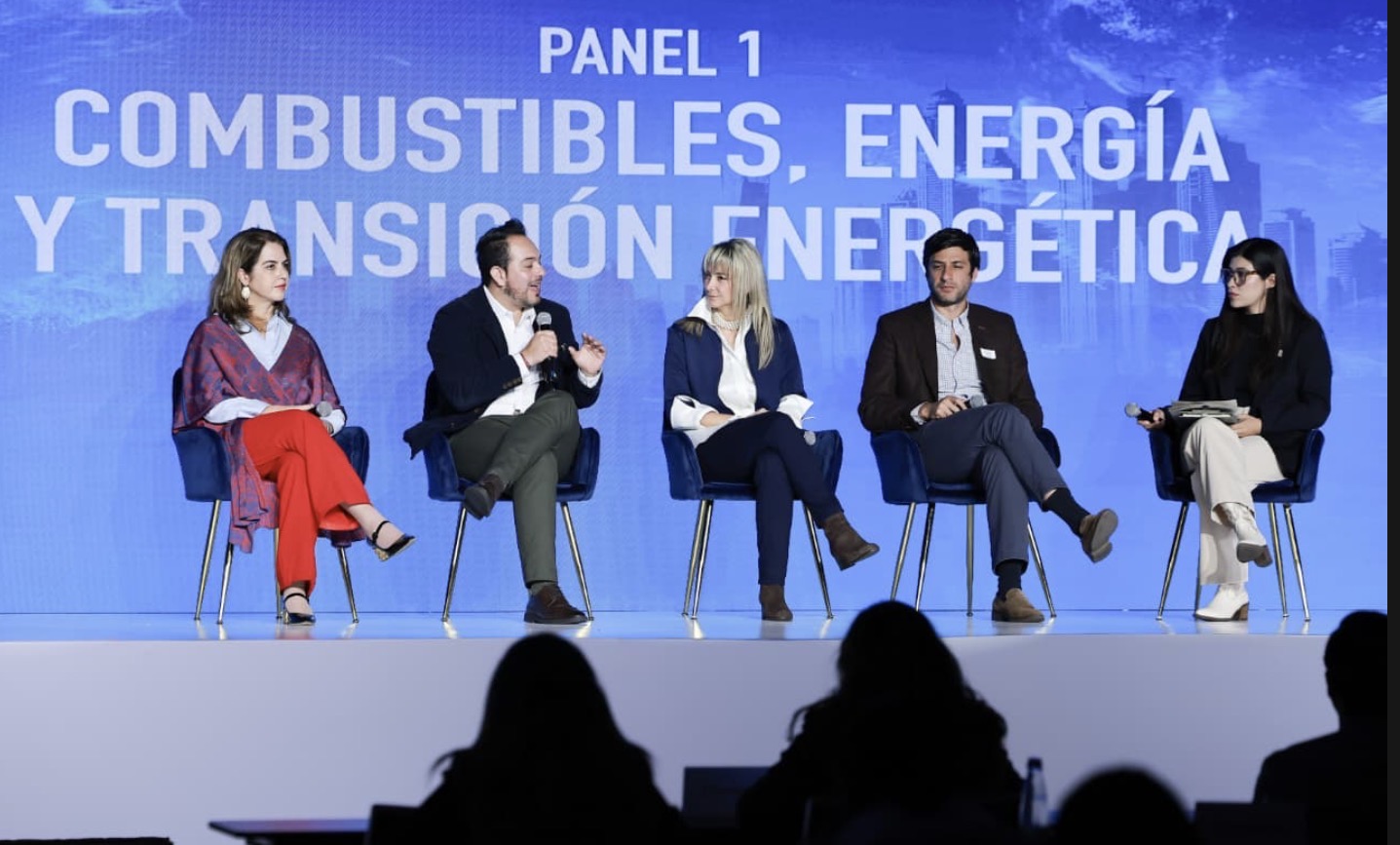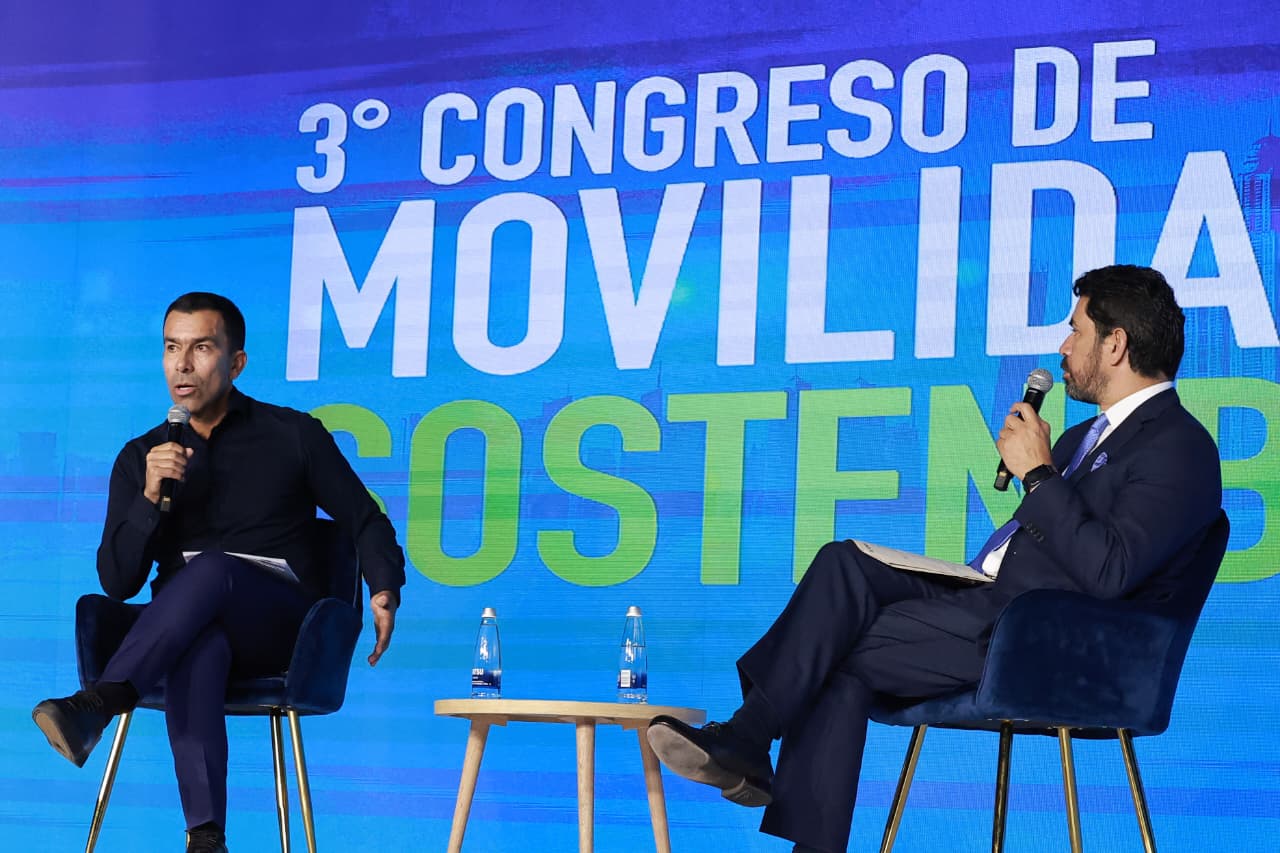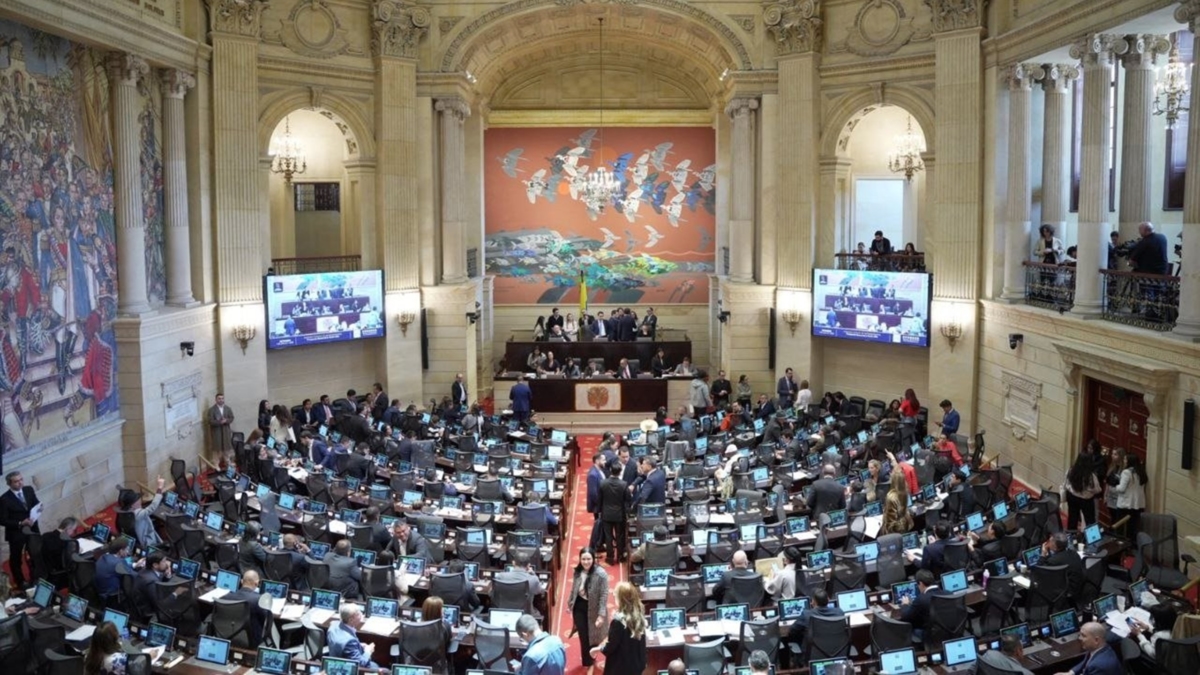Business leaders and experts are calling on the government to implement clear rules to advance sustainable mobility in Colombia.

A strong message emerged from the 3rd Andemos Sustainable Mobility Congress: the country will not be able to advance its energy transition or reduce emissions in the transportation sector if the government does not provide legal stability, coherent public policies, and clear investment rules.
The conclusion was shared by business, union, and financial leaders, presidential candidates, and regional authorities, who agreed that Colombia is at a crucial crossroads: it must create the conditions to attract investment in sustainable mobility or lose competitiveness compared to the region.
In the opening panel, Andemos President Andrés Chávez emphasized that the sector needs regulatory clarity.
"Without trust, no company is going to risk millions in assembly, electrification, or charging infrastructure," he said.
Participants noted that "contradictory" decisions have been made in 2025, creating uncertainty in the market, and that there are also ongoing discussions regarding the review of incentives for hybrid vehicles.
According to Andemos, in 2025 the sector has faced uncertainty generated by government decisions such as the termination of the Automotive Agreement with Brazil, the dismantling of tariff benefits for vehicles imported from the United States, and the discussion of a tax reform that would eliminate incentives for hybrid technologies. The end of the automotive agreement with Brazil (ACE72) is also a threat to the local market.
Added to this is the debate over fuel prices and automotive sector taxes, which, according to companies and unions, generates distrust among investors. "Policies cannot punish the gradual transition or stigmatize technologies that are still necessary," warned Carolina Rojas, president of Fedebiocombustibles, who defended the importance of ethanol and biodiesel as complementary energies to electric mobility.
Another reiterated message was the need to implement a realistic energy transition, tailored to the country's economic conditions. " Colombia does not yet have the electrical infrastructure to electrify all mobility. We need technological coexistence: electric, hybrid, natural gas vehicles, biofuels, and hydrogen," said Miguel Sebastián Zamudio, product manager at Magma Automotive.
Andrés Felipe Vargas, Director of Mobility at Vanti, focused on the cargo fleet: “More than 90% of trucks in Colombia are over 20 years old. Without vehicle renewal, any transition policy is incoherent.” Alexandra Hernández, from Ser Colombia, added that any strategy must guarantee electricity supply: “ If we don't ensure generation and transmission, electric mobility will be unviable in the short term .”
Hernández was emphatic and warned that energy coherence is required. "We cannot promote electric mobility if we continue to delay transmission projects. The country needs serious decisions on energy and tariffs ."

Andemos Sustainable Mobility Congress Photo: Néstor Gómez
The financial sector also participated in the debate. Gerardo Hernández, president of Banco AV Villas, warned that the tax climate has begun to slow down projects in the sector. “The market is moving well, but there is a cloud hanging over its head: fiscal risk. If rates rise again or if incentives are eliminated , financing becomes more expensive and investment will grind to a halt,” he noted.
In her speech, Transport Minister María Fernanda Rojas affirmed that the government remains committed to sustainable mobility. “This isn't a narrative about the future; it's an urgent need for the present. Colombia already has more than 31,000 electric vehicles and 165,000 hybrid vehicles,” she said.
Rojas highlighted tools such as the Fund for the Promotion of Technological Advancement (FOPAC), which will provide up to $34.5 million to taxi drivers who migrate to electric vehicles, in addition to the public transport fleet replacement plan. Regarding the union's complaints about the lack of clear incentives, she was blunt: " This process is carried out with industry, local governments, banks, and unions . No one can make this transition alone."
The governor of Cundinamarca, Jorge Emilio Rey, stated that the country can only speak of sustainable mobility if it first resolves logistics connectivity. “It's not just about Bogotá. Colombia can't compete globally if it doesn't connect its regions,” he stated.
Rey highlighted advances such as the Western Regiotram, the Northern Regiotram, aerial cable cars in Soacha and Bogotá, and the structuring of freight rail corridors. However, he issued a warning: "The Bogotá savannah will receive 2.5 million new inhabitants by 2050. If we don't plan now, mobility will collapse ."

Governor of Cundinamarca, Jorge Rey. Photo: Nestor Gómez/ EL TIEMPO
The political panel featured Enrique Peñalosa, Juan Daniel Oviedo, Mauricio Gómez Amín, and Carlos Felipe Córdoba, who agreed that the country has not defined a public policy on sustainable mobility.
Peñalosa stated that "sustainable mobility means equality. Reclaiming space for pedestrians and public transportation must be a priority."
While Oviedo maintained that "the energy transition cannot be solely electric; it must be multimodal and productive."
In turn, Gómez Amín criticized the lack of infrastructure: "There aren't enough charging stations. Policy can't be just about buying electric cars."
Córdoba, for his part, proposed lowering VAT to 7% and eliminating it for sustainable vehicles. "We need real incentives," he said.
The industry also weighed in. Juan Carlos López, general manager of Deepal and Changan Colombia, stated that the sector remains optimistic, but demanded clear signals: "Jobs and investment in local assembly can be generated if there are stable regulations."
For his part, Julio Calderón, Toyota's compliance officer, insisted on maintaining the automotive agreement with Brazil, saying, "Without international agreements, Colombia will have no competitiveness."
The president of Andemos concluded the forum with a resounding message: "Sustainable mobility requires institutional continuity and stable policies. Without legal certainty, there will be no energy transition in Colombia," he declared.
In a country where transportation accounts for 42% of energy consumption and 32% of emissions, the challenge is clear: we must move forward quickly, but on solid foundations.
More newseltiempo





